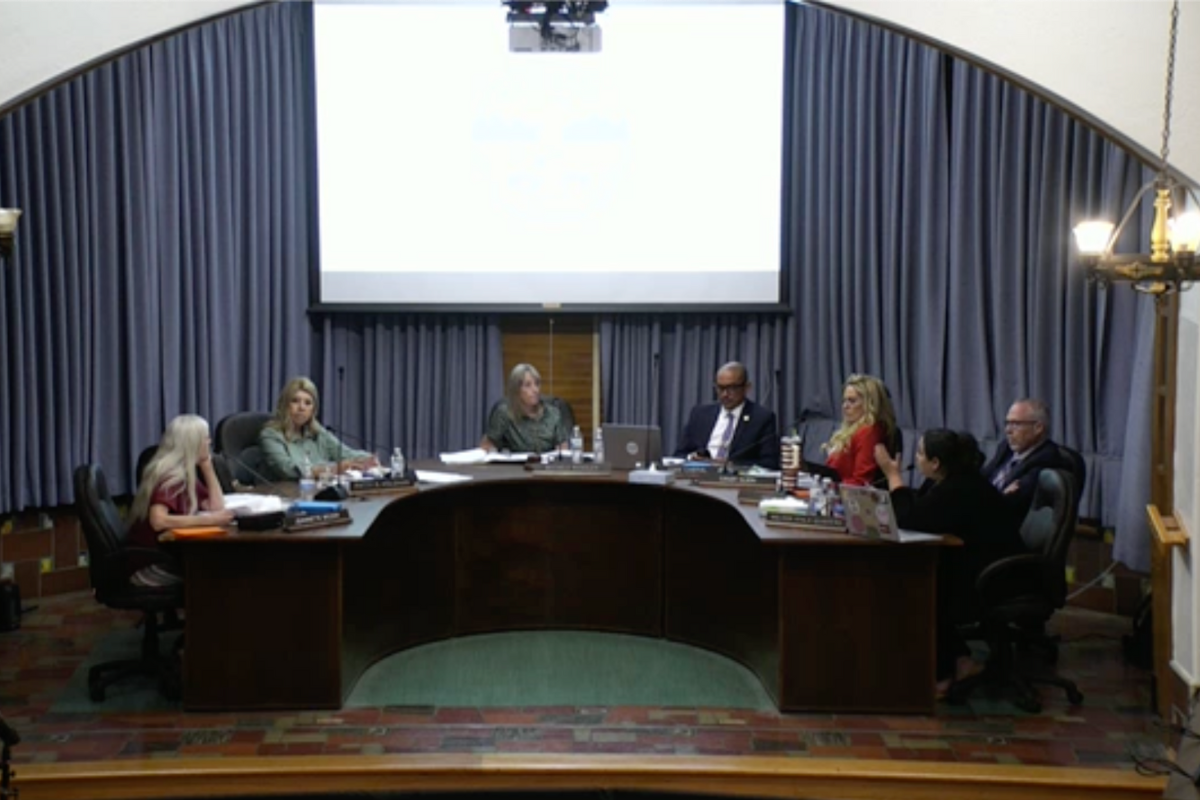RUSD launches Spanish dual language program; Planning Commission OKs new shopping center
Redlands News Weekly | Jan. 22, 2026
Board split 3-2 as members call for definitions, rubric, and compromise approach

REDLANDS, Calif. — After 90 minutes of heated debate Tuesday night, the Redlands Unified School District Board of Education voted 3-2 to table proposed revisions to its administrative regulation on complaints about library books, citing a lack of clarity around definitions and concerns about removing access to materials already on shelves.
A separate vote on proposed changes to Board Policy 6000, which addresses instructional materials, also failed.
President Michele Rendler, Vice President Patty Holohan, and Board Member Melissa Ayala-Quintero voted against approving the policies. Board members Jeannette Wilson and Candy Olson supported their passage.

Rendler, who voted for the policies on June 24, said Tuesday that she could not move forward without consistent language between the two policies, clear definitions of key terms, and a standard review process for books with “perceived pornography, erotica, graphic descriptions or depictions of sexual acts.”
The revised regulation, AR 1312.2, would have created a fast-track process allowing parents to challenge materials deemed “sexually explicit,” bypassing a district-level committee and sending those challenges directly to the board. It also would have applied stricter standards to books available in school libraries.
Rendler was joined by Holohan and Ayala-Quintero in calling for a rubric to evaluate challenged content and clearer definitions for terms such as “sexually explicit,” “pornographic,” and “vulgar.” However, disagreement emerged over whether to finalize the policy first and define the terms later.
“I’d rather not wait,” Wilson said, adding that she believes public schools should not offer books with sexually explicit content at all.
Olson also pushed for immediate approval. “We don't need more time on something we've spent a tremendous amount of time on already,” she said.
Ayala-Quintero said the policy failed to account for families who want their children to have access to certain titles.
“You guys keep calling it pornography,” she said. “I don’t know who’s getting sexually aroused by these things. But you know what it does? It makes me uncomfortable — and it helps me develop empathy and understanding.”
Much of the discussion centered on whether commonly challenged books—such as The Perks of Being a Wallflower—could remain available to students if parents explicitly opt in.
“Where is the compromise?” Ayala Quintero asked. “If this board decides that a book like The Perks of Being a Wallflower is inappropriate, then you're taking that decision away from me as a parent.”
Olson defended the policy as a protective measure. “There is no legal obligation to provide sexually explicit material to children,” she said. “It’s okay if we err on the side of caution. We are not obligated to provide every book.”
Several board members expressed openness to creating a restricted section in school libraries where challenged books could remain available to students with parent permission.
“Let’s put them in a different area so that way, when parents do opt in, they can get that book,” Holohan said.
Superintendent Juan Cabral said that while such a system was possible, it would require direction to implement. He also clarified that AP course books could be subject to the same challenges, though students with objections are typically assigned alternative texts.
More than 230 public comment cards were submitted at Tuesday’s meeting. Most speakers opposed the proposed policy, arguing that it amounted to censorship, restricted student access to diverse perspectives, and would disproportionately harm already marginalized youth—particularly LGBTQ+ students and students of color.
“Banning books does not erase any of the issues or the identities that this board is concerned with,” said one speaker. “They still exist and will always exist. All this policy does is make it more difficult for young people to navigate and understand our world.”
Many speakers emphasized that parents already have the right to monitor their own child’s reading and warned against allowing one group’s beliefs to dictate access for all.
The board is expected to revisit the policy at its next regular meeting on Aug. 8. Staff will return with updated language, a definition of “sexually explicit” consistent with California law, and options for a content review rubric.
Sign up for our weekly newsletter